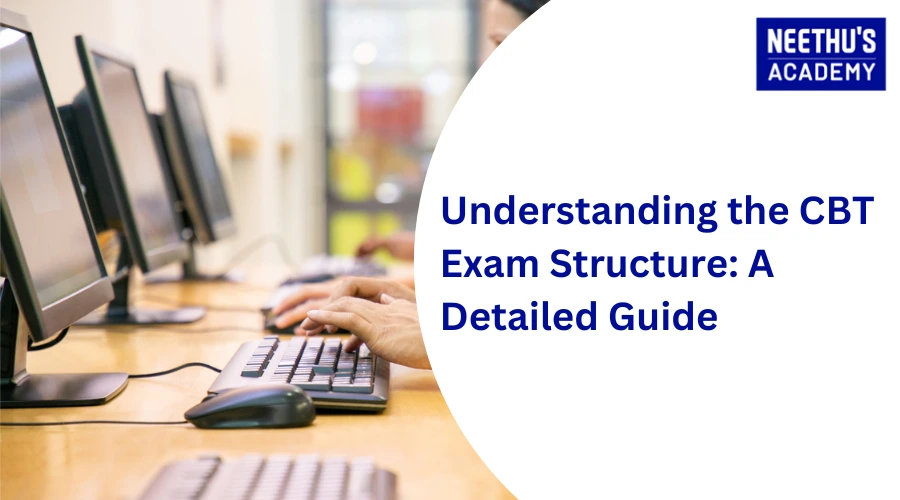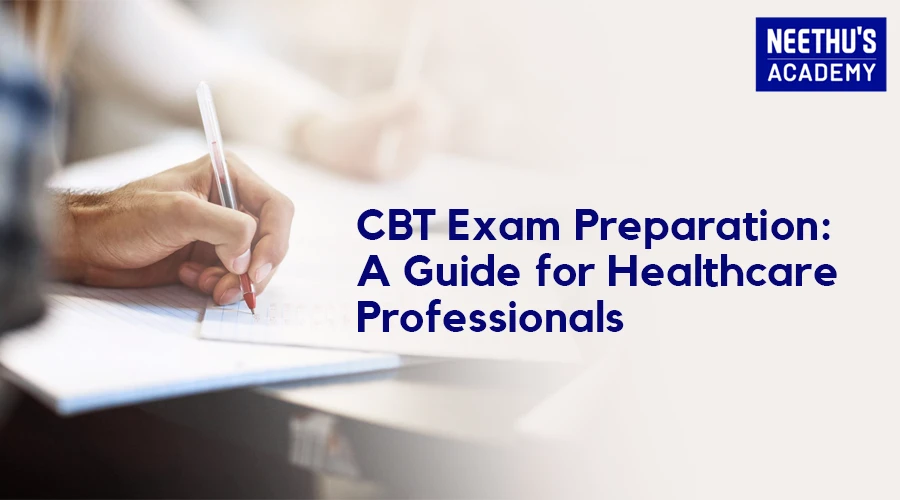CBT Exam Preparation Tips: Unlock Your Full Potential
The CBT (Computer-Based Test) exam is a critical milestone for many professionals and students pursuing certification, licensure, or academic achievement. Its popularity stems from its objective assessment of both theoretical knowledge and practical skills. Success in the CBT exam requires more than just rote learning—it calls for a strategic approach to preparation, time management, and understanding the exam’s structure.
In this detailed outline, we will cover the exam format of CBT, suggest tips on how to prepare, and lay down the best strategies to win.
What is a CBT Exam?
A CBT is a computer-based test taken from multiple fields, like medical, education, and IT. Unlike ordinary paper-and-pencil tests, computer-based tests rely on computer technology to generate streamlined testing environments.
Some applications of CBT exams are as follows:
Licensure Tests: Nursing licensure exams like NCLEX, and medical licensure tests.
Professional Certifications: IT field; for example, Cisco, CompTIA certifications
College Entrance Test, University Exams
Characteristics of CBT Tests
Timed Test: Most of the CBT tests are timed; this test also tests one’s time management besides knowledge.
Results: In some CBT exams, the result is instant. This can be used to get an idea about the performance of the test taker.
Flexible Centers: CBT exams can mostly be taken either at designated test centers or home, depending on the exam.
Why a Clear Strategy is Important
Taking the CBT exam without any strategy can mean wasting time, poor concentration, and unnecessary pressure. A strategy will ensure proper preparation and full confidence on exam day.
Advantages of Having a Strategy
Saves Time Properly: Makes sure that vital topics are dealt with and one does not engage in last-minute cramming.
More Confident: A clear plan reduces apprehension and boosts confidence.
Comprehensive Thoroughness: It ensures that all important areas are covered in the preparation.
Structure of the CBT Exam
The structure of a CBT exam can vary with different subjects and purposes, but most CBT exams have the following general pattern:
Several Sections: Exams usually consist of several sections, and each section deals with different competencies.
Timed Sections: Any given section has a set time limit.
Options to Navigate: In some cases, the answers of the candidates can be revised, while others cannot be modified after submission.
Major Parts of the CBT Test
Theoretical-based Questions: Tests the knowledge
Application-based Questions: These ask the candidate to apply theoretical concepts in practical real life situations
Critical Thinking-type Tasks: An exercise to critically think and act with limitations
Multiple Choice Questions (MCQs): The most common format, where you select the best answer from several options.
Drag-and-Drop Exercises: These are usually found in IT or healthcare exams to check on the understanding of procedures.
Simulation-Based Tasks: Real-life scenarios that check the practical skills of a candidate in a simulated environment.
Top CBT Exam Preparation Tips
for increasing your chance of success:
1. Prepare Early and Study Wisely
Don’t cram everything in at the last minute. Plan your studies and give yourself time to get all the concepts under your belt. Create a study calendar that contains your goals for the day or week.
2. Quality Study Materials
Quality resources include textbooks, online courses, and practice tests. Such resources are focused and specifically geared to the subject being covered to allow one to pass his or her CBT examination.
3. Practice Tests
Practice tests are one of the best ways of preparation. They will help familiarize you with the pattern, increase your speed, and enable you to find out your weak areas. Revise the performance after every test to understand on which topics more attention is to be given.
4. Core Concepts Proper Study
Revise the basics: A lot of basic concepts should be built on. Most CBT exams will give preference to the core knowledge, so do not jump over the basic material for advanced material.
5. Time Management in the Exam
Practice time management during the mock exams. Learn how much time to spend on each question and avoid spending too much time on one thing.
Tips for Success in the CBT Exam
Passing the CBT exam is not just about studying; it is also about planning how to tackle the test day.
1. Keep Track of Changes in Exam Guidelines
Exam formats and guidelines change from time to time. Always check the official website or handbook for updates on the latest requirements, such as identification policies, permitted items, and exam rules.
2. Keep Calm and Concentrate
Anxiety can affect your performance. Practice relaxation techniques, such as deep breathing or visualization, to remain calm. Get to the test center early to avoid unnecessary anxiety.
3. Analyze Past Performance
If you have taken the CBT or similar tests before, analyze your results to find patterns of mistakes. You will learn from past performance and avoid repeating mistakes.
Developing a CBT Exam Study Plan
A well-crafted study plan is the backbone of effective preparation. Here’s how to create one:
1. Assess Your Starting Point
Before diving into preparation, evaluate your current knowledge and skills. Take a diagnostic test to understand your strengths and weaknesses.
2. Set Realistic Goals
Break your preparation into smaller, manageable milestones. For example, aim to master a specific topic each week or complete a set number of practice tests.
3. Allocate Time for Revision
Spend the last few weeks before the exam reviewing the major topics, practicing questions, and reinforcing the fact that your weak points are lackluster.
Common Mistakes to Avert
Not making some obvious mistakes will save you precious time and effort:
Delaying Preparation: Procrastination reduces efficiency and increases stress.
Forgetting Practice Tests: Not preparing for model exams decreases preparation and leaves one unprepared for the form as well as the time constraints.
Overloading Study Sessions: Studying for hours without breaks causes mental burnout, and a lot is forgotten.
Ignore Changes to the Exam Requirements: Failure to review changes can cause unnecessary confusion on test day.
Conclusion
Preparation for the CBT exam is a process that requires effort, planning, and perseverance. Knowing what the exam looks like, taking relevant preparation tips seriously, and devising an effective study plan can help one feel confident and focused when going to take the test.
Remember, success is not just about hard work but also smart work. Start early, stay consistent, and leverage high-quality resources to achieve your goals. With the right mindset and preparation, you’ll be well on your way to passing the CBT exam and taking the next step in your professional or academic career.
Frequently Asked Questions





